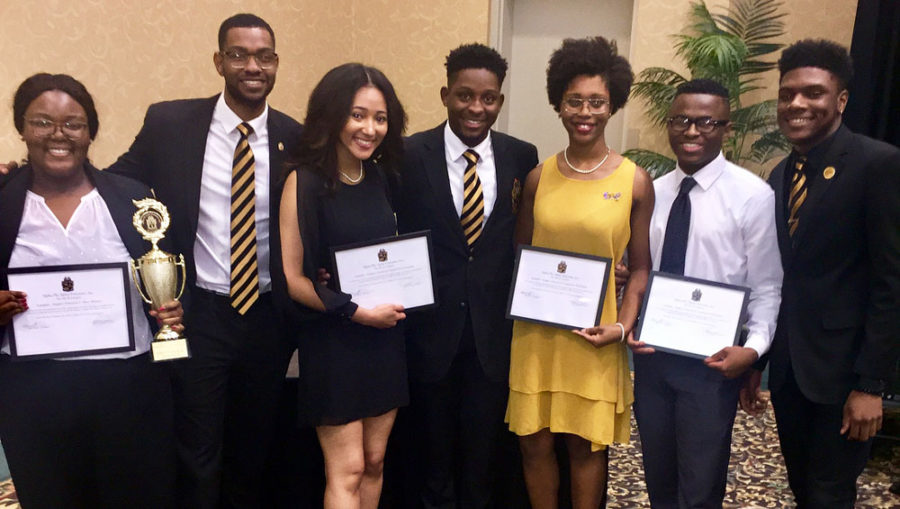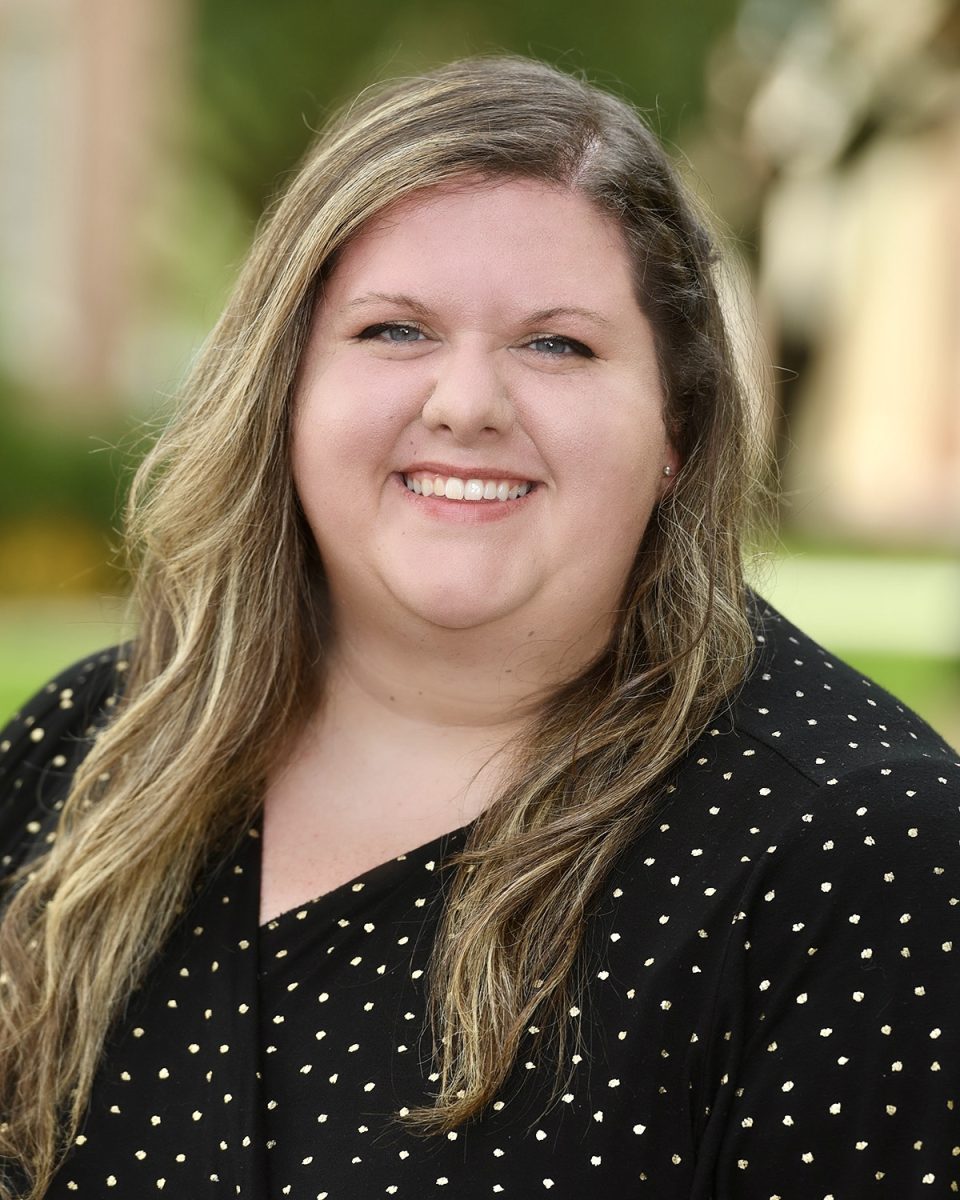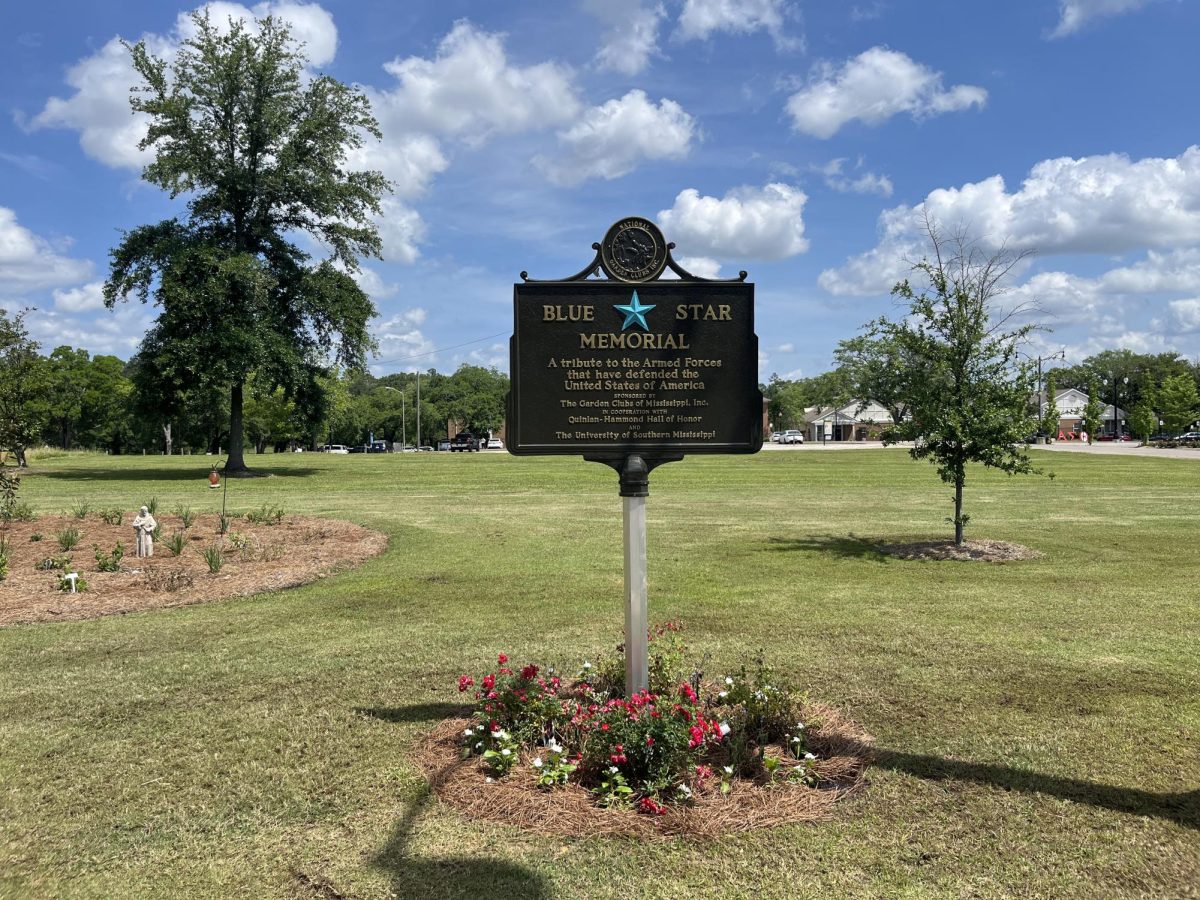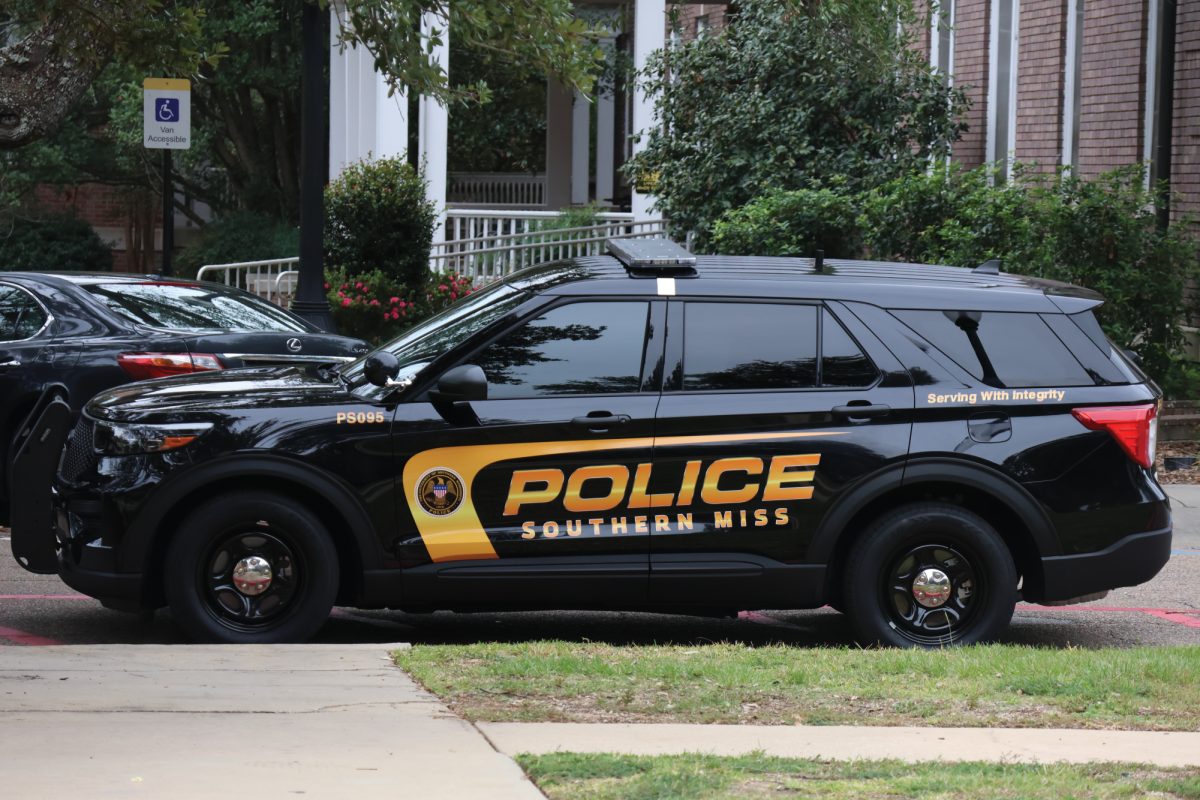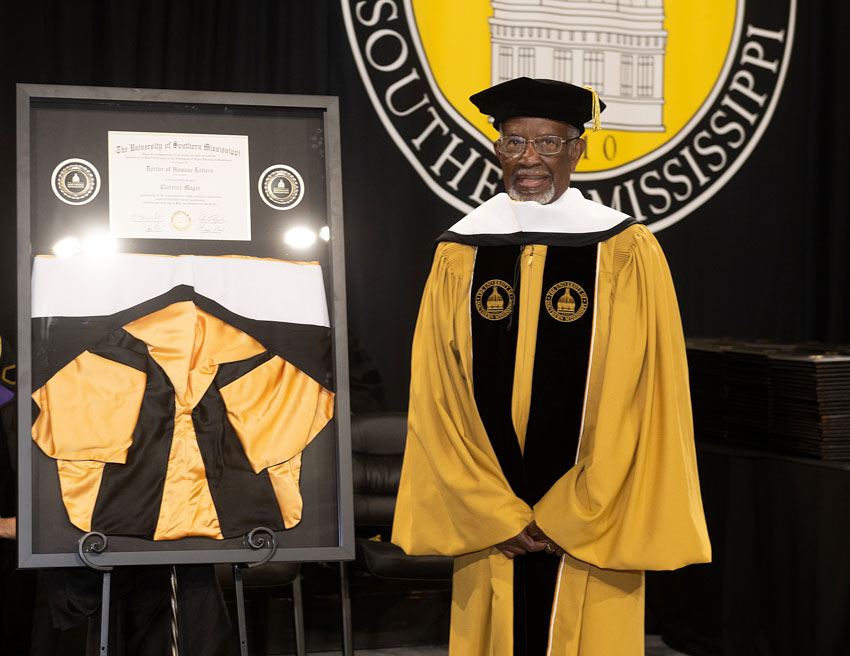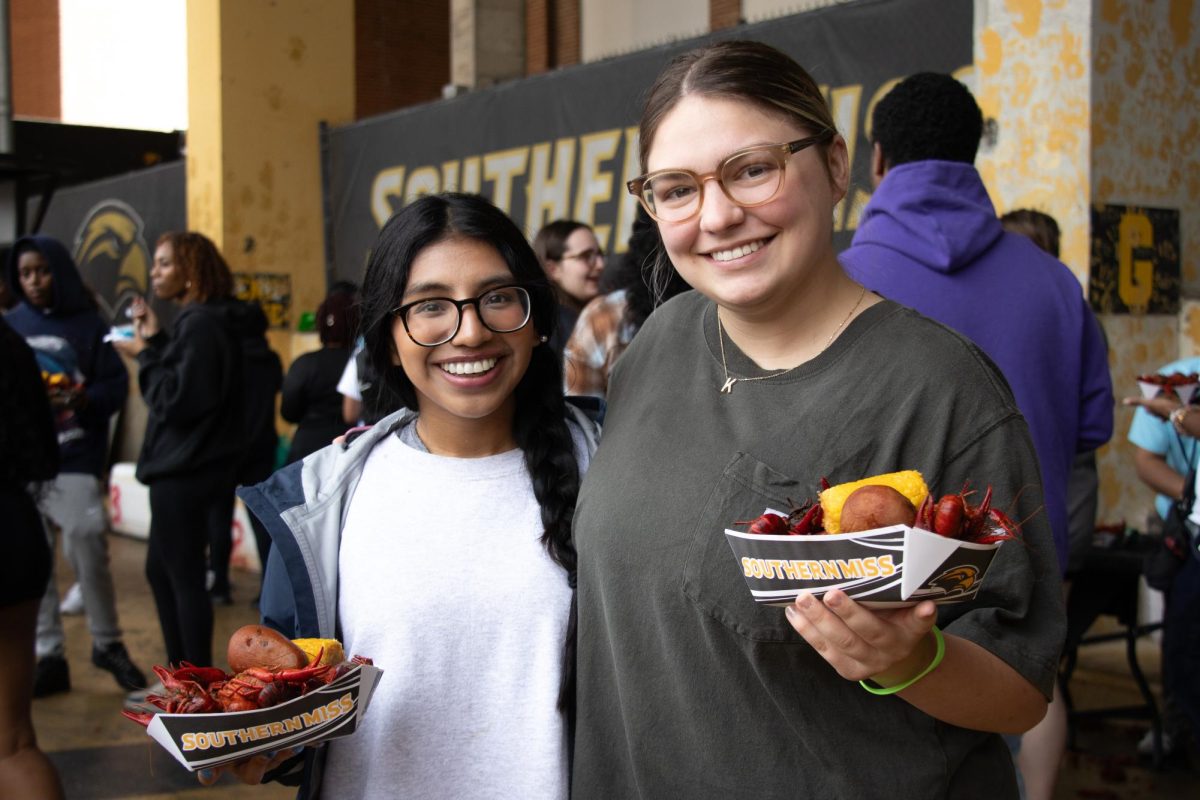On the last day of Black History Month, the Mu Xi Chapter of Alpha Phi Alpha Fraternity invited Southern Miss students to listen to four of their peers answer the Lampkin-Hughes Oratorical Competition prompt: “Sixty-three years after Thurgood Marshall’s groundbreaking Brown v. Board win, speak on the level of inclusiveness at this P.W.I.”
Co-chairman of the competition and sophomore political science major Ryan Johnson said the annual competition is the chapter’s most popular event because it allows African-American students to speak publicly about their experiences.
“The oratorical competition opens the door for students to voice their opinions and finally be heard,” Johnson said. “Traditionally, the Oratorical Competition is held during Black History Month, and the topic is one based on issues facing the black community.”
“We all agreed that the topic would reflect an issue that African-Americans and other minorities faced daily, and we were sure that students would be enthusiastic about speaking on the issue,” Johnson said.
Arriyon Gaines, Jaz Morton, Ebonee Jackson and Ryone Thompson each gave seven minute speeches.
One of the five judges was Vice Provost for Academic Affairs Dr. Amy Miller, who was chosen “based largely on the fact that she currently focuses her research on student success with a special interest in diversity and inclusion in higher education,” Johnson said.
“I noticed the themes of what was said, and there was nothing I hadn’t heard before,” Miller said. “But I think there are certain points that are definitely being reiterated as points of concern.”
During the competition, most of the participants expressed disapproval with the ethnicity- centered statistics, references to the Clyde Kennard marker unveiling, and opinions about the lack of diversity in organizations like SGA and in the faculty.
Winner of the competition senior broadcast journalism major Jackson said that although Southern Miss is diverse, the lack of inclusivity became more and more evident to her as she continued her college career.
“When I was a freshman and sophomore,” Jackson said. “I was taking Honors courses, which basically consisted of smaller class sizes with other Honors students. On more than one occasion, I was the only black student in these classes.”
“At first, it was extremely uncomfortable for me such as the time we went on a trip to Birmingham, Alabama, to learn more about the Civil Rights Movement.” Jackson said. “I always felt like my peers and my professor looked to me to answer questions that I didn’t necessarily have the answer to. But just knowing that the number of students who looked like me at that time were so few and far between really made me not feel included at times.”
Although Miller’s job involves the academic development of students rather than student affairs, she hopes to partner with the new Vice President for Student Affairs and Vice Provost to work towards inclusivity in student organizations like SGA.
“I notice that they’re not inclusive,” Miller said. “Our demographic profile is not mirrored at everything we go to, so I think that’s a challenge we need to figure out how to address. I was very glad to be in the room the other night to hear the speeches.”
Johnson said he noticed that no member of SGA was present at the event and might consider extending invitations to members in the future.
“Student leaders and faculty both share the blame for the lack of inclusiveness,” Johnson said. “Our students must help create environments where people of all races feel accepted. For example, the SGA office is a place on campus that could improve in this aspect. Many of our black students feel unaccepted when they enter this office, and this could be based on something as simple as a conversation changing when they walk into the room.”
Miller will be forming a Diversity & Inclusion Advisory Board of minority students from popular student organizations like AASO and the VSA this spring to combat the issue of inclusivity.
Along with that, Miller said the Office of the Provost, specifically Provost and Senior Vice President for Academic Affairs Dr. Stephen Moser, is working towards diversifying the faculty.
“Our student body, if you look demographically, we’re not too far off from the state of Mississippi, but we’re pretty far off for faculty.”
“We have to do something to increase the faculty who are not white,” Miller said. “It broke my heart when Ryone said she is about to be a junior and she has never had a black professor. That shouldn’t be.”
However, hiring diverse faculty has been a challenge for the university.
“If you have someone who is on the job market because of historical circumstances, there are not a lot of people of color on the market,” Miller said. “If they’re on the market, they’re likely to have choices. We have to compete aggressively to get people here. We have financial challenges with that because we don’t pay like many other institutions. We also have an image issue with us being in Mississippi. If I have a Ph.D chemist or English professor from Berkeley, they are carrying around stereotypes that make it one more obstacle for them to consider us as an institution.”
While the Office of the Provost attempts to find creative recruitment techniques, they are also working on reorganization. Beginning on March 9, the new deans and directors of the four new condensed colleges will be attending orientation sessions. One will be about diversity and inclusion.
In addition, Southern Style began partnering with Reader’s Theatre in fall of 2017. Southern Style leaders would perform from scripts about Southern Miss’ values like sexual assault prevention, alcohol and drug awareness and diversity. This includes subtopics like religion, gender, ethnicity, politics, income and prejudice.
Miller said the program received positive feedback, and some students even felt comfortable enough to reveal their sexual orientation and family troubles to their orientation groups.
“If you had been here three or four years ago, the word ‘diversity’ was very rarely used,” Miller said. “We never really talked about Southern Miss being a diverse institution in any way or that we wanted to be more diverse, that we wanted to be inclusive. That is something I think should be a major part of who we are as university.”































